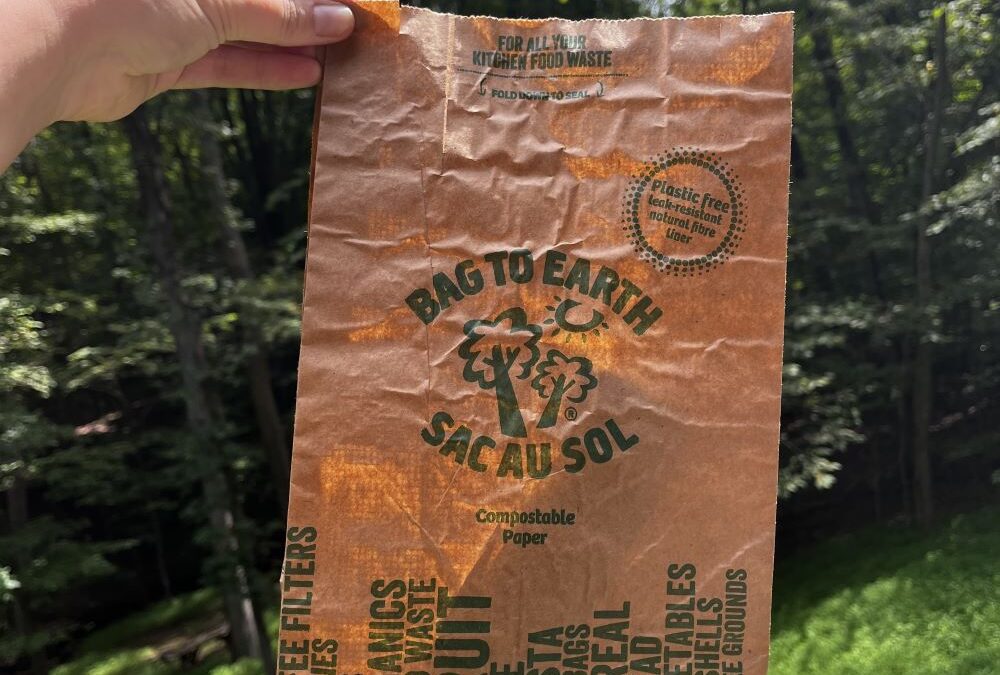At The ReCollective, we’re always looking for ways to improve how we serve our community. That’s why we’re excited to introduce our brand-new, 100% compostable, and plastic-free paper food scrap bags!
These paper bags are a game-changer. Made entirely from virgin wood pulp and rice paper, they’re non-toxic, PFAS-free, and printed with vegetable-based inks. They’re the perfect companion for your 4-gallon Purple food scrap bins, offering an eco-friendly solution that aligns with our commitment to sustainability. Additionally, these bags are ideal for lining a countertop bin, measuring 12″ x 7″ x 4″, and are conveniently available in a 10-pack.
Here’s a pro tip: To prevent any odors and slow down decomposition, consider storing your filled bags in the freezer. When pick-up day rolls around, simply drop them into your purple bin, and you’re all set!
You can find these new bags in the Member Dashboard Shop now.
Understanding the Challenges of Compostable Plastics
While compostable plastics are often marketed as eco-friendly alternatives, they don’t always deliver on their promises. These materials need specific conditions to break down, usually found only in industrial composting. If they end up in landfills, they decompose slowly and can release methane, a potent greenhouse gas. Additionally, the production of compostable plastics is resource-intensive, requiring significant amounts of fossil fuels, water, and farmland.
Even when they do break down, compostable plastics may leave behind harmful residues, such as PFAS, which can pose risks to both human health and the environment. The lack of stringent regulations in the U.S. allows for greenwashing, where products are labeled as compostable without meeting strict environmental or safety standards, potentially misleading consumers and businesses.
For more information, check out these recent articles from The New York Times and The Atlantic, which discuss the complexities and challenges of compostable plastics in greater detail.

